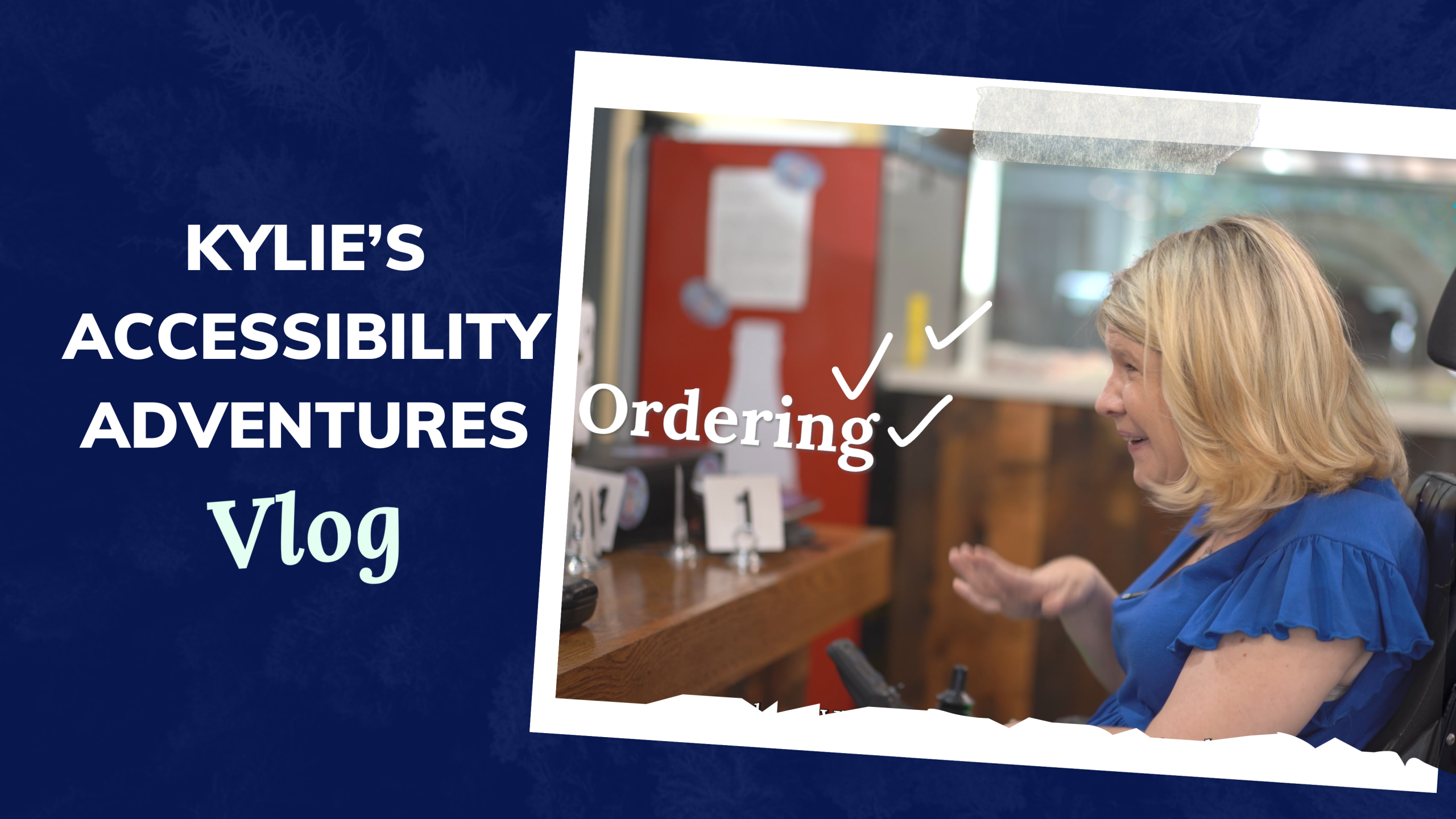By Kylie Moore
In my previous writings, I covered topics like how to advocate for yourself and provided techniques on how to request accommodations. But before we can get to this point, we first need to be hired. All companies and hiring managers are looking for loyal, hardworking employees who can bring new ideas to an organization, and many people with disabilities fit this description. Yet, in 2023, the unemployment rate for individuals with disabilities was more than twice as high compared to those without disabilities.
The disability community has become one of the largest untapped labor pools in the United States.
With proper strategies in place, organizations of all sizes and from all industries can drastically benefit from hiring people with disabilities. This small but vital step can help increase profits, boost employee morale, and help promote diversity and inclusion in the workplace. Employees with disabilities are very loyal to their organizations. They are dependable and will work hard to become a valuable part of a company.
A Large Untapped Labor Pool
People with disabilities are significantly underemployed. This is evident in the latest data published by the Office of Disability Employment Policy (ODEP), part of the US Department of Labor. In 2023, the unemployment rate for those with disabilities, aged 16-64, was 7.7 percent. The black and Hispanic populations are at the top of the chart with 10.2 and 9.4 percent unemployment rates.
These unemployment rates are more than twice as high compared to those without disabilities. In 2023, the unemployment rate for those without disabilities was 3.5 percent. Almost 80 percent of persons with disabilities were unemployed in 2023. Additionally, workers with a disability were nearly twice as likely to work part time as workers with no disability.
These statistics are shocking and very sad. There are 15.1 million people with disabilities of working age in the US. If companies embraced disability inclusion in the workplace, they would gain access to a talent pool of over 10.7 million people.
If these things are true, why are employers so reluctant to hire individuals with disabilities? According to a paper published by Accenture, employers may not be aware of the scope of talent available in the disability community. Additionally, they may lack understanding of the benefits of hiring people with disabilities or may have misconceptions about the cost versus return on investments of disability inclusion in the workplace.
However, there are many more advantages than disadvantages when hiring people with disabilities, and I will cover them in the next several paragraphs.
Five Main Reasons to Hire People with Disabilities
People with disabilities are dedicated and loyal employees
I am a person with a disability, avid advocate, and educator. I work with the disability community to help them become better advocates, and I know from personal experience that many people with disabilities are dedicated, hard-working individuals who want to perform their jobs to the best of their abilities. They have a strong work ethic due to the challenges and barriers they have faced. Employees with disabilities often feel they must work hard to prove themselves at work, to combat stereotypes about their abilities.
People with disabilities are very reliable employees who are rarely absent from work. Individuals with disabilities make loyal employees who give their all to their organizations. Employees are faithful to their organizations because finding meaningful employment can be difficult. When people with disabilities find the right company that meets their accommodation needs, they will remain loyal to the organization, because they are grateful for the opportunity the company gave them. When employees with disabilities feel valued and accepted at an organization, they will want to stay there for extended periods.
Hiring people with disabilities increases employee morale
Hiring people with disabilities can boost an organization’s morale by creating a sense of employee belonging and pride. When companies actively hire people with disabilities, it sends a message that the organization believes in diversity and inclusion. Employees with and without disabilities feel recognized for their individuality, which can create a positive work culture. Employees tend to feel more positive about where they work when they see their employer taking steps to promote social responsibility and inclusion. Having an inclusive workplace fosters teamwork and collaboration among employees from diverse backgrounds. When companies include people with disabilities in teams at work, it creates a culture of cooperation and mutual support that leads to stronger bonds among employees.
Individuals with disabilities are creative
Individuals with disabilities must live in a world that is often not accommodating to their needs. The fact that they face constant struggles causes them to be creative and good problem-solvers because they must find innovative solutions that help them navigate everyday challenges. People with disabilities have unique experiences and perspectives that can foster new ideas and approaches. Individuals with disabilities face many barriers throughout their lives. Their ability to handle these obstacles requires critical thinking and perseverance. They often carry their creativity into their jobs. Employees with disabilities help educate their companies on accessibility and inclusion in the workplace. When they advocate for accessible environments, it leads to creative initiatives and solutions that benefit everyone in the organization.
Hiring people with disabilities gives companies a better understanding of customer needs
Employees with disabilities have firsthand experiences with the challenges that others with disabilities face throughout their lives. They can share their unique knowledge and perspectives with their employers, to help them learn the needs and preferences of disabled customers. Many employees with disabilities have a higher sense of empathy allowing them to provide good customer service skills. They can also identify if products have any accessibility issues that need to be addressed. Companies that employ individuals with disabilities in their design, development, and testing processes can benefit from a more user-centered approach when creating products. Individuals with disabilities play a significant role in providing customer service to other people who have disabilities.
Companies can get tax incentives for hiring someone with a disability
Some companies may be eligible to receive tax credits for hiring people with disabilities. These credits can offset part of the company’s tax liability, providing financial incentives for their commitment to inclusive hiring practices. The Work Opportunity Tax Credit is a federal tax credit available to employers who hire people from specific target groups, including people with disabilities. Employers can receive a tax credit between $1,200 and $9,600 per eligible employee, depending on the target group the individual belongs to, and the number of hours that they work. To qualify for the Work Opportunity Tax Credit, employees with disabilities must meet certain criteria stated by the program. There are also separate criteria that employees must follow to claim credit, including getting a certification from a state workforce agency, saying that the employee is part of the target group.
Employers may be eligible for wage subsidies or reimbursements for hiring someone with a disability. These subsidies help with the cost of training and employing workers who have disabilities, making it more financially feasible to have inclusive hiring processes.
Companies may also be able to deduct expenses related to some accommodations for employees with disabilities, such as workplace modifications and assistive technology requests. Companies can apply for grants or funding opportunities if they can prove they are trying to hire individuals with disabilities. In other situations, organizations with a strong desire to employ individuals with disabilities can receive preferential treatment when bidding on government contracts or procurement opportunities.
Training and support programs can sometimes be offered to employers hiring people with disabilities. These programs can provide resources, guidelines, and assistance to help employers integrate disabled employees into the workforce.
The disability community remains one of the largest untapped labor pools in the country, and if employers utilize these talented individuals, their companies will prosper tremendously. Hiring individuals with disabilities will bring a positive return on investment to organizations because of their unique skills and commitment to success.
Reach out to Bobby Dodd Institute to learn more about employing people with disabilities or to receive free help and resources for disability awareness training.

I’m Kylie Moore, from Roswell, Georgia, living with Cerebral Palsy. I’ve dedicated my career to advocating for the disability community, creating self-advocacy programs, and serving on boards. I founded the Ambassador Program at AADD, received the Tom Miller National Advocacy Award in 2020, and now advise Arts InCommunity. When not teaching, I can be found watching the Georgia Bulldogs or my beloved New England Patriots play football or participating in wheelchair sports.




